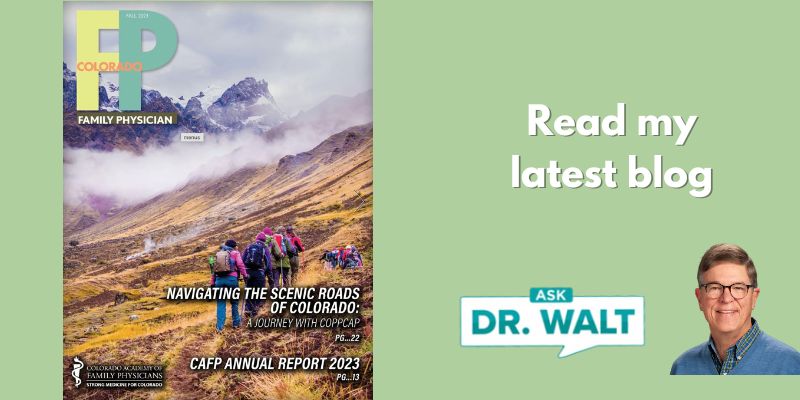Busted: Top five flu myths
December 11, 2011Sweetened beverage consumption associated with hypertension risk
December 13, 2011A new Cochrane Review finds that zinc supplementation CAN reduce the duration and severity of a cold SOME, but ONLY if it’s started early on.
Zinc has been in and out of favor as a treatment for the common cold, based on contradictory findings, since the first randomized trial was published in 1984. The studies have had conflicting results have made it difficult to recommend zinc—until now.
A 2011 Cochrane review addressed the question: Does zinc reduce the duration and severity of the common cold? The review also assessed zinc’s ability to prevent colds, although only 2 studies focused on prevention.
The bottom line? Zinc works, but NOT very well.
The results showed that patients who took zinc had only about a one-day shorter duration of cold symptoms. However, the severity of symptoms was reduced about 40%, which is considered a small to moderate effect.
To get this effect, one needs to take a lozenge containing 10 to 24 mg of zinc gluconate every 1 to 4 hours for several days.
The two most frequently reported were:
- bad taste and
- nausea.
The side effects were not severe, so you can decide for yourself whether the benefit of a reduction in cold duration is worth the downside of these side effects.
Here are more details in a report from the Journal of Family Practice. The report was written for family physicians:
STUDY SUMMARY: ZINC FOR COLDS? COCHRANE REVIEW PROVIDES CONVINCING EVIDENCE
The researchers included only randomized, double-blind, placebo-controlled trials in which oral zinc supplementation was used for ≥5 consecutive days for treatment or ≥5 months for prevention. Studies included patients of any age, taking any dosage and any formulation of zinc.
Primary outcomes included the duration of symptoms, the severity of symptoms, and the incidence of the common cold in prevention studies. Secondary outcomes included the proportion of patients symptomatic after 3, 5, and 7 days of treatment, the time to resolution of individual symptoms (eg, cough), change in individual symptom scores, school absences, antibiotic use, and adverse effects.
Thirteen therapeutic trials and 2 prevention trials met the inclusion criteria. These studies, all of which were judged to be of high quality with a low risk of bias, had a total of 996 patients in the therapeutic trials and 394 patients in the prevention trials. Participants ranged in age from 1 to 65 years.
Therapeutic trials.
In general, therapeutic studies included lozenges containing 10 to 24 mg zinc gluconate, with one lozenge taken every 1 to 4 hours during the day for 3 to 7 days. In one therapeutic trial that enrolled only children ages 1 to 10, the intervention group took zinc sulfate syrup (15 mg bid) for 10 days. In 11 of the 13 therapeutic studies, treatment began in the first 24 hours of symptoms; in the remaining 2, it began within 48 hours of symptoms.
Ten studies reported on duration of symptoms; 6 of them were similar enough to allow for pooling of results. The pooled results showed that patients who took zinc had a shorter duration of cold symptoms (0.97 days; 95% confidence interval [CI], -1.56 to -0.38), compared with those on placebo. Pooled results from 5 trials revealed that zinc significantly reduced the severity of symptoms by a standard effect size of 0.39 (95% CI, -0.77 to -0.02), which is considered a small to moderate effect.
Prevention trials.
In one prevention trial, which included only children ages 6½ to 10 years, those in the intervention group took one 10-mg zinc sulfate tablet 6 days a week for 5 months. In the other trial, children in the intervention group took 15 mg zinc sulfate syrup daily for 7 months.
Pooled results from these 2 studies revealed that daily zinc supplementation substantially reduced the incidence of colds.
The incident rate ratio (the number of children who developed colds while taking zinc compared with the number who developed colds while on placebo) was 0.64 (95% CI, 0.47-0.88). In the original trials, one study found a difference of 0.5 colds (1.7 in the control group vs 1.2 in the intervention group) per season, and the other found a difference of 1.8 colds per season (3.15 in the control group vs 1.37 in the intervention group).
This Cochrane review provides convincing evidence from 13 randomized placebo-controlled trials that taking zinc soon after the onset of symptoms of the common cold significantly reduces both the duration and severity of symptoms. Zinc supplements are widely available over the counter, so you can recommend that patients take zinc the next time they develop a cold.
In addition, 2 prevention trials found that zinc can reduce the incidence of colds in children, whether it is taken as a syrup or in tablet form. There have been few trials of zinc for prophylaxis of the common cold, and no previous meta-analyses included preventive studies. This Cochrane review substantiates the effectiveness of zinc for prophylaxis of the common cold in young children.
However, children need to take zinc daily for prophylaxis, which may be inconvenient. Long-term safety information is not yet available. Given these considerations, parents may choose to wait for additional evidence about safety before considering daily prophylaxis.
CAVEATS: ADVERSE EFFECTS, LONG-TERM USE MAY CREATE PROBLEMS



